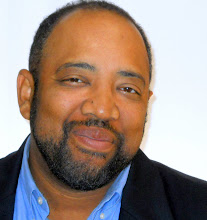The first thing you have to realize about "SPIN Selling" by Neil Rackham is that it's a book for selling to large accounts, written before anybody else was writing books about selling to large accounts. Yes Virginia, selling to large accounts is different than selling to smaller ones. To begin with, you cannot close the sale in one day; as a result, opening the discussion by trying to closing technique is counterproductive.
Besides, in major sales, the salespeople usually are not in the room when most of the important decisions are made. It's the salesperson's contact who needs to sell within her organization. It's the job of the salesperson to arm his contact with enough information to make her an effective influencer.
Like any good book on sales, Rackham has methodology, in this case a four step questioning process. In fact, the book gets its name from the four types of questions asked: Situational, Problem, Implication and Need Payoff. Rackham says the key to sales is understanding where you are in the sales cycle – he identifies The Preliminaries, Investigating, Demonstrating Capability and Obtaining Commitment – and only to asking the kinds of questions that get you to the next level because sales in large accounts follow a specific sequence over a long timeline.
SPIN Selling process
Situational questions set the context for asking Problem questions that reveal implied needs, like the desire for a more accurate billing system. Asking Implication questions about how many ways a more accurate would help the end-user's company lead to Need-Payoff questions, which help the buyer focus on solutions and benefits.
Speaking of benefits, Rackham notes that benefits come in two varieties: those that can help any customer and those that address your customer's express need. He differentiates the two types of "benefits" by calling the former an Advantage and the latter is a real Benefit. Advantages help close small sales, while Benefits, which address explicit buyers needs, help land big deals.
Yes, the book is dated. Written 1988, it doesn't take into account that your customers already know a fair amount about your product from the Web. At least somewhere in the questioning process, you have to determine how much your customer already knows about your product, if only to dispel mistaken assumptions. Additionally, while the book is very strong on tactics, it mistakenly assume you will only sell to someone lower in the company's organization. It does not provide tactics on how to use the SPIN method to move up the company's organizational ladder, trying to get closer to the person who decides what projects get funded.
All of that being said, nearly 25 years after the book was published it is still a foundational book on large account sales. While the information available to customers has changed, the process for moving a customer through the sales cycle has not.
When the book was released, readers found that its theories ran counter to conventional wisdom because it deemphasized closing techniques in large sales. At the time, most sales books focused on closing. Actually, most sales training focused on closing because, as Rackham points out, closing used to be the one place in the sales cycle that had an understandable and quantifiable result.
But Rackham's studies show that trying to close too early alienates professional buyers, the very person who is almost certainly on the other end of the sales call at a large account. Instead, the SPIN method relies on asking questions to tease out problems and help the client understand how the seller's solution can tip the value equation to the buy side of the ledger.
The foundation of the book is rests on research conducted by Huthwaite corporation's 12-year $1 million research project into sales effectiveness, not just one excellent salesperson's career experience This means the results of the book can be applied across a wide spectrum of businesses and industries, making a great starting point for learning about major account sales.
Now on the other hand, if you want to read anything about closing the quick sale, let me point you to either Tom Hopkins or Zig Ziglar.



